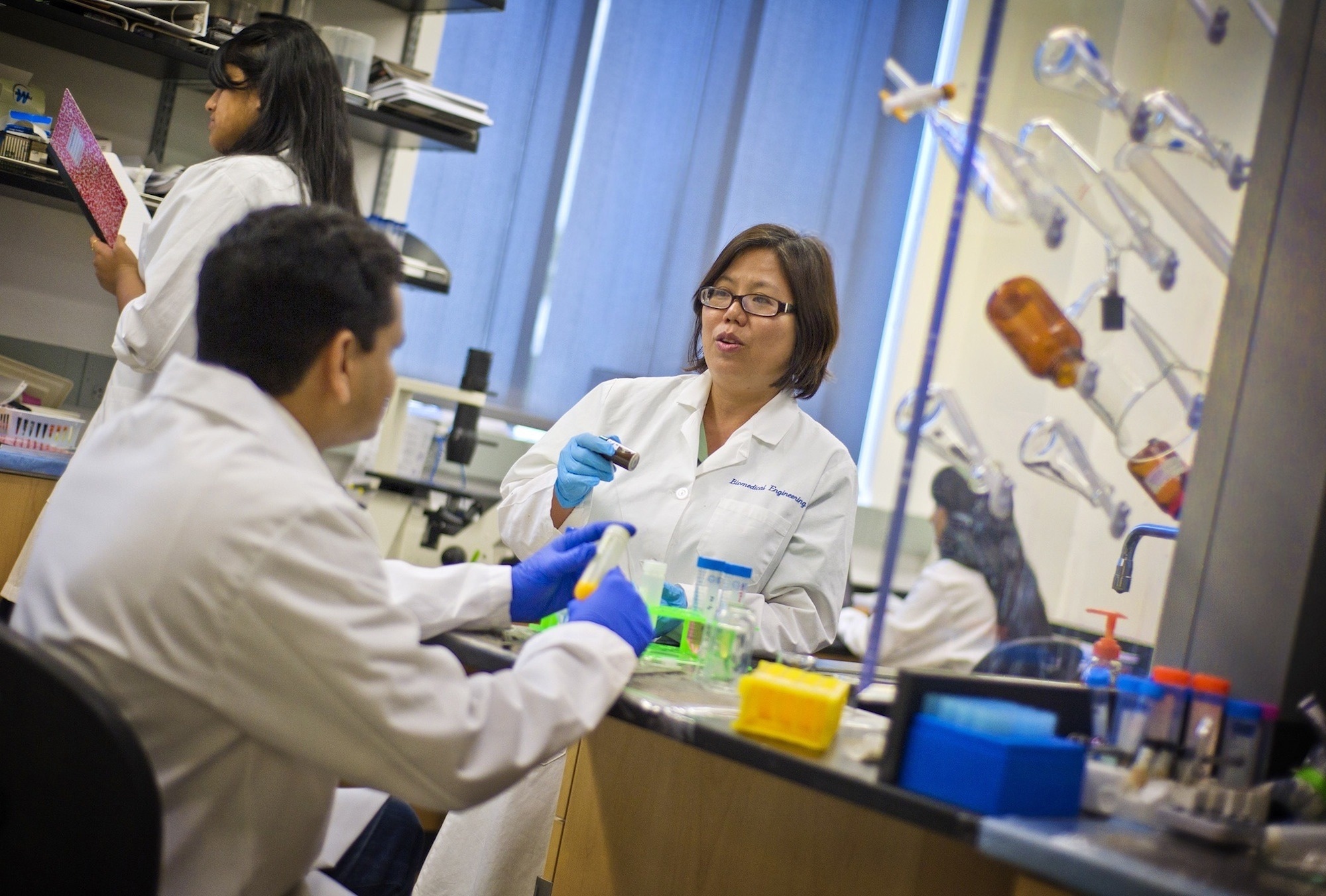An effort to create biodegradable nanoparticles that can capture images and administer medication to treat peripheral arterial disease (PAD) is being led by a bioengineer at the University of Texas at Arlington.
 Kytai Nguyen. Image Credit: University of Texas Arlington.
Kytai Nguyen. Image Credit: University of Texas Arlington.
The primary investigator for the four-year, $2.1 million National Institutes of Health (NIH) grant is Kytai Nguyen, a professor of bioengineering at UT Arlington. Nguyen is working alongside Ralph Mason, a professor of radiology at UT Southwestern, and Jian Yang, a bioengineering professor at Penn State University and former UTA faculty member.
What’s important in this project is that the technology carries fluorescent and ultrasound imaging capabilities, which will provide patients and doctors with more detailed information. It also gives patients more targeted medicine, making it more efficient.
Kytai Nguyen, Study Principal Investigator and Bioengineering Professor, University of Texas Arlington
PAD, also known as atherosclerosis or hardening of the arteries, is a common condition in the elderly. More than 200 million individuals are affected globally, and significant rates of disease and mortality are linked to it.
The goal of the project is to create new biodegradable nanoparticles that can deliver therapeutic compounds that precisely shield cells from stress, promote blood vessel growth in hypoxic environments, and enable non-invasive multimodal imaging techniques.
The utilization of these novel nanoparticle platforms to deliver therapies locally, treat the disease efficiently, and non-invasively monitor therapy through imaging is one result of the research. According to Nguyen, the main objective is to lessen problems and enhance people with PAD’s quality of life.
Nguyen’s pioneering work has the potential to significantly benefit patients who live with PAD, according to Michael Cho, chair of the UT Arlington Bioengineering Department.
This cutting-edge technology has a chance to change our protocols on how to deal with atherosclerosis. When you are able to target localized lesions for treatment that is so much better for the patients and much less invasive than current treatment.
Michael Cho, Chair, Department of Bioengineering, University of Texas Arlington
Since joining UT Arlington in 2005, Nguyen has been awarded funds from the Cancer Prevention & Research Institute of Texas three times: in 2010, 2016, and 2021. Nguyen has also received support from the American Heart Association, National Institutes of Health, National Science Foundation, and Departments of Education and Defense of the United States, among others.
Nguyen is a fellow of the Biomedical Engineering Society, a member of the UTA Academy of Distinguished Scholars, a senior member of the National Academy of Inventors, a fellow of the American Institute for Medical & Biological Engineering, and a fellow of the American Heart Association.